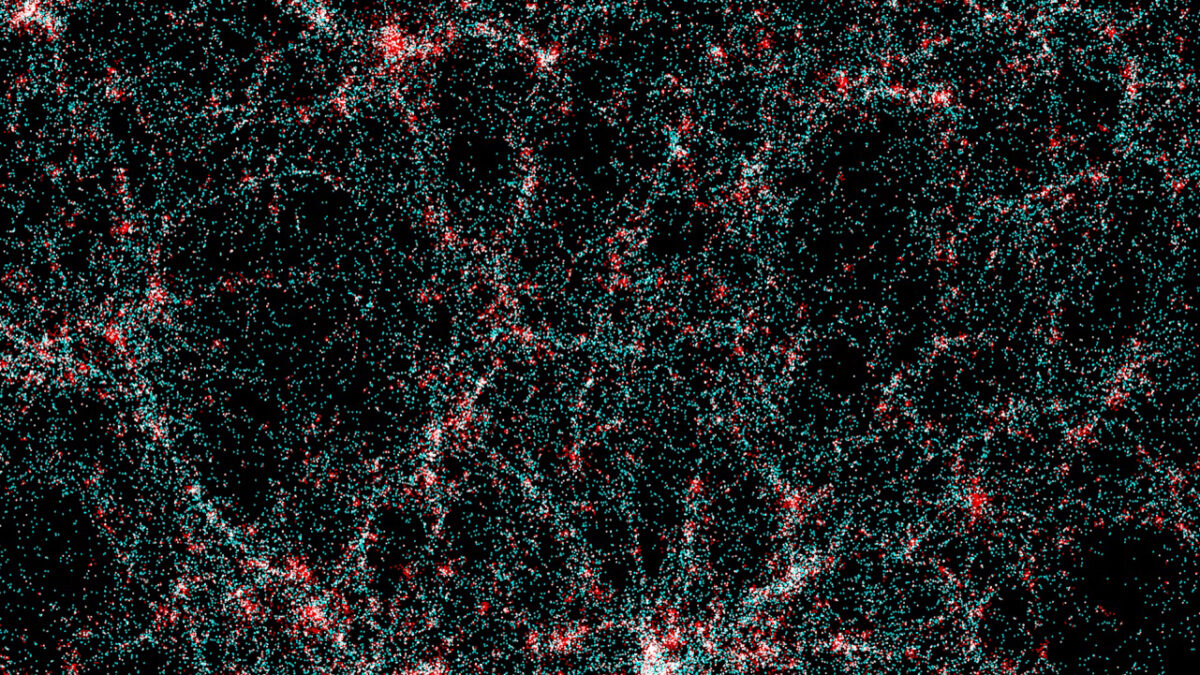For centuries, astronomers have been captivated by a fundamental question: What is the universe made of? The answer, it seems, is as mysterious as it is intriguing. Recent studies and astronomical surveys have shed new light on this enigma, mainly focusing on the elusive and dominant components of the cosmos: dark matter and dark energy.
Table of Contents
Dark Matter and Dark Energy: The Invisible Majority
Our universe is a mixture of complexities, with “normal” matter — the atoms and molecules that constitute stars, planets, and everything visible — comprising a mere 5% of the cosmos. The rest is a mysterious combination of dark matter and dark energy. Dark matter, making up about 25%, is an unseen substance only detectable through its gravitational effects on ordinary matter.
On the other hand, dark energy, accounting for a staggering 70%, is believed to be responsible for the universe’s accelerating expansion.
The Dark Energy Survey: A Decade of Discovery
The Dark Energy Survey (DES) represents a monumental effort in unravelling these cosmic mysteries. Over ten years, more than 400 scientists across continents observed parts of the southern sky, focusing on the properties of dark energy. They used Type Ia supernovae, exploding stars with a consistent brightness, as cosmic yardsticks to measure distances across the universe. This method, coupled with machine learning to classify thousands of supernovae, has led to groundbreaking insights into the nature and behaviour of dark energy.
Challenging the Cosmological Constant
Albert Einstein first introduced the concept of a cosmological constant to balance his equations in the General Theory of Relativity, later discarding it as his “greatest mistake.” However, with the discovery of the universe’s accelerated expansion in 1998, the idea resurfaced, albeit under a new guise: dark energy.
The recent findings from the DES challenge the long-standing notion that dark energy is a cosmological constant with a value of -1. Instead, the survey suggests a value close to -0.8, hinting that dark energy might be more dynamic and complex than initially thought.
Exploring the Universe with Advanced Technologies
The pursuit of understanding dark energy involves ground-based observatories and space missions like the Euclid spacecraft and the Vera C. Rubin Observatory. These advanced technologies are expected to provide more detailed observations of supernovae, further refining our understanding of the universe’s expansion.
The Future of Cosmological Research
As researchers continue to analyse data and integrate results from various observational techniques, the nature of dark energy remains an open question. This ongoing quest not only seeks to unravel the mysteries of this but also aims to understand the universe’s fundamental properties and future evolution.
Implications of Recent Findings
The implications of the DES findings are profound. If dark energy is not a constant, it could suggest new physics beyond our current understanding. This revelation could also provide insights into other cosmological puzzles, such as the Hubble tension, which refers to the conflicting measurements of the universe’s expansion rate.
The Role of International Collaboration
The success of the Dark Energy Survey underscores the importance of international collaboration in scientific research. The combined efforts of scientists from various countries and specialisations have paved the way for a deeper understanding of our universe and its complex components.
The Journey Continues
As the quest to understand the universe’s mysteries continues, each discovery brings us closer to answering age-old questions about our cosmos. The study of dark energy, in particular, represents a significant chapter in this journey, offering a glimpse into the fundamental forces shaping our universe.
A Universe of Possibilities
In conclusion, the universe is vast, dynamic, and largely mysterious. Studying dark energy and the universe’s expansion is not just an academic exercise; it’s a journey to understand our place in the cosmos. As we continue to explore and question, we open doors to new knowledge and possibilities, reminding us that the universe is not just something we inhabit but something we are a part of.
